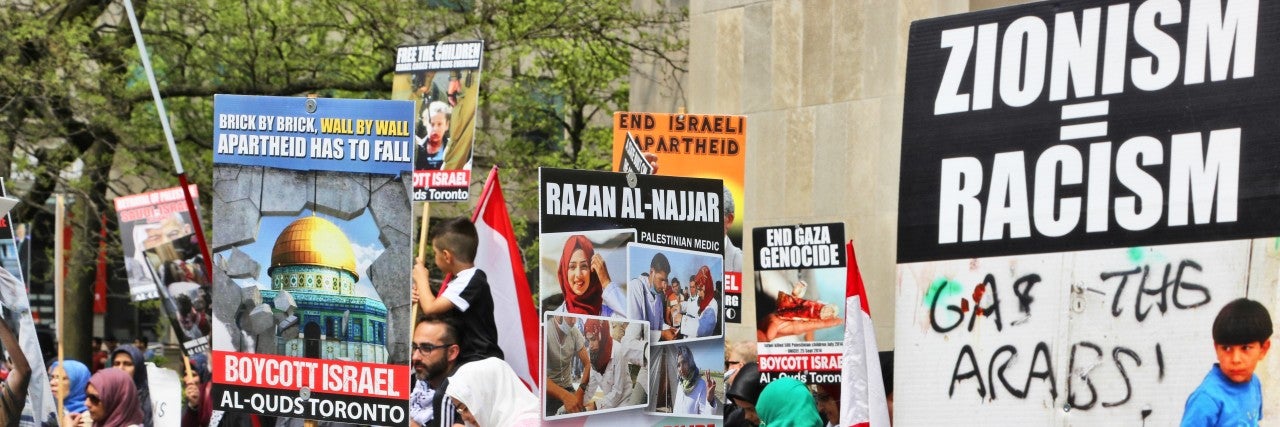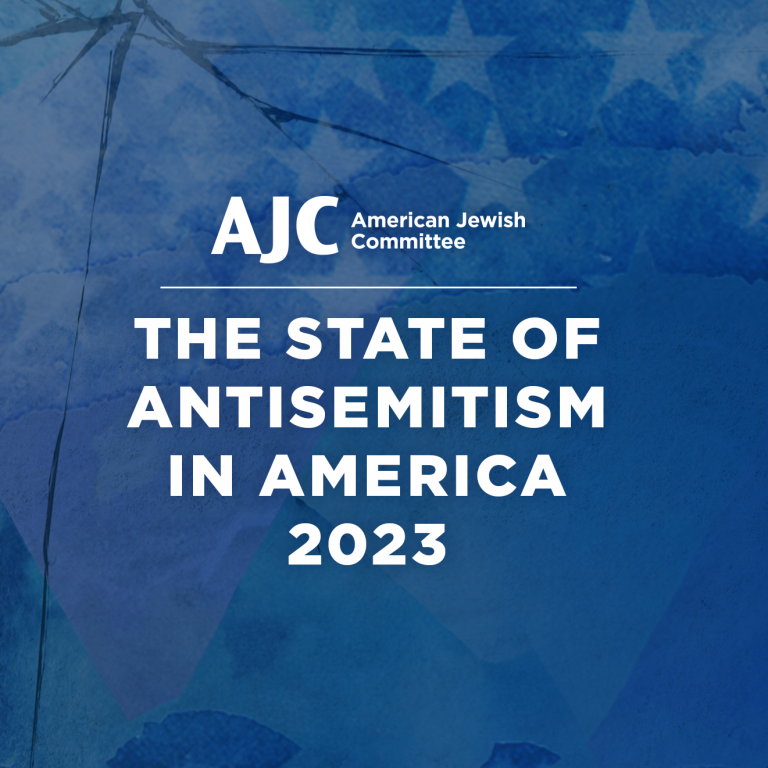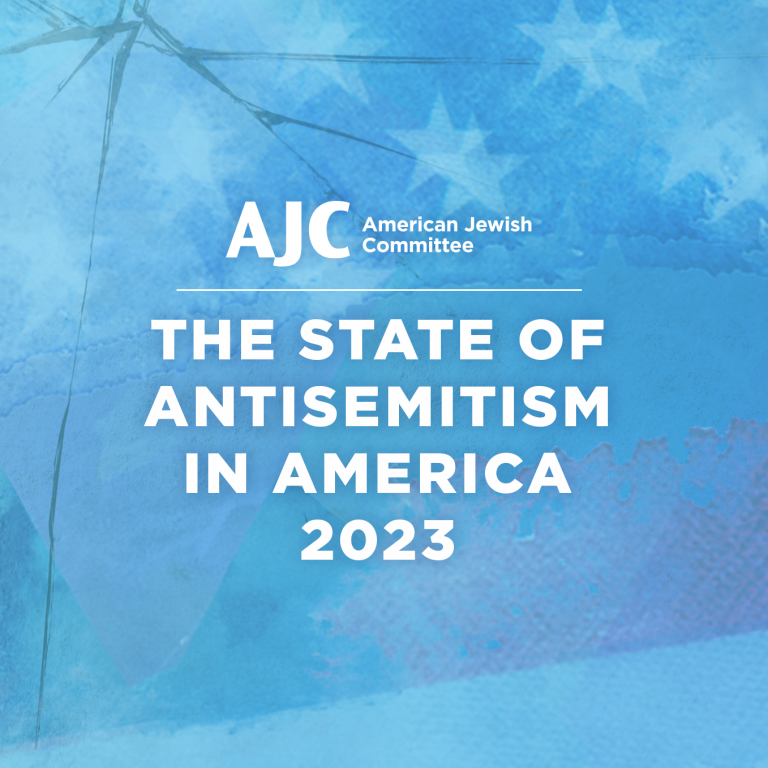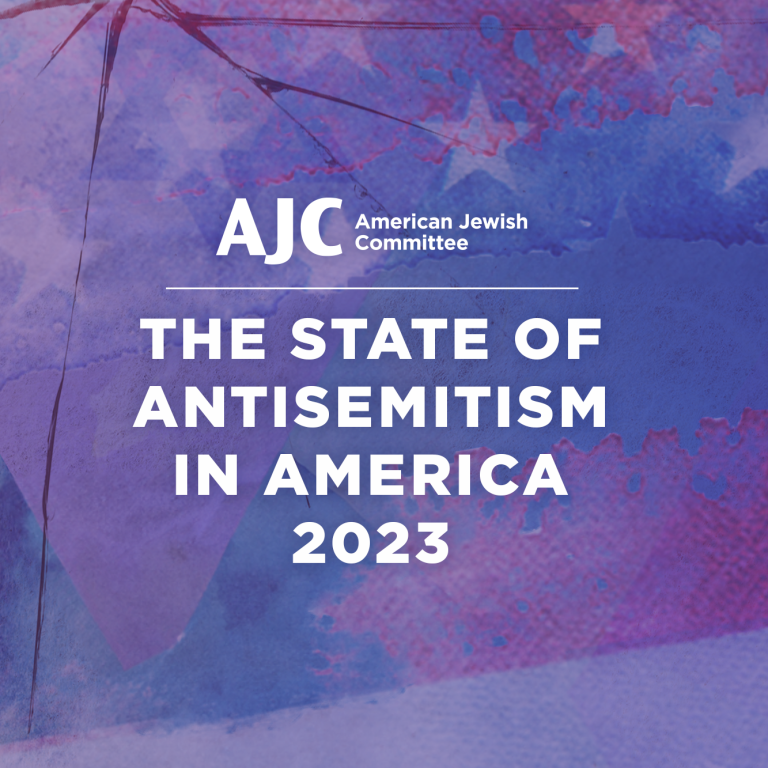February 21, 2024
American Jewish Committee just released its State of Antisemitism in America 2023 Report, which highlights the rapidly changing and challenging reality for American Jews in navigating everyday life with antisemitism.
In Philadelphia, we are all too aware of how antisemitism has affected Jews, especially since Oct. 7, when Hamas terrorists attacked Israel and slaughtered more than 1,200 innocent civilians and kidnapped over 250 men, women, children and babies.
We were besieged by disruptive anti-Israel rallies demanding a cease-fire that conveniently ignored that a cease-fire was in place on Oct. 7.
We watched Jewish and Israeli-owned stores and restaurants like Goldie’s be protested and scapegoated by those fixated on demonizing anything with ties to the Jewish state.
We see Israel vilified in some school districts in our area in curricula that brands Israel a “settler-colonialist state” and on college campuses where pro-Palestinian demonstrators, students and faculty have disrupted classes, hosted antisemitic speakers and have made being Jewish on campus a frightening and disturbing experience. And, no, it is not a problem confined to the University of Pennsylvania.
All of the vitriol and wanton hatred unleashed following the Hamas attack was reflected in the AJC report, which found 78% of more than 1,500 American Jews surveyed say they felt less safe since the Hamas attacks.
As troubling, 63% of American Jews said their status in the U.S. was less secure than a year ago, more than double the percentage from when that same question was asked two years ago.
Moreover, 46% of American Jews said they have changed their behavior in the past year out of fear of antisemitism, to avoid being publicly identified as Jewish.
The AJC report actually contained some encouraging news. More than nine in 10 Americans, Jewish and U.S. adults, say everyone is responsible for combating antisemitism and believe antisemitism affects society as a whole.
The survey of 1,200 U.S. adults found 63% say they know someone who is Jewish and 82% know what antisemitism means, and those who know someone Jewish are more likely to say antisemitism has increased over the last five years and are more likely to have seen an antisemitic incident.
Respondents also overwhelmingly agreed that Jewish communities and other religious and ethnic communities must work closer together.
You can never have too many allies, which is why AJC helped launch the Pennsylvania Asian Pacific American Jewish Alliance in 2022 and also helped found the Jewish Latino Coalition and the Circle of Friends, which is the Philadelphia chapter of the Muslim-Jewish Advisory Council co-founded by AJC in 2016.
History has shown that hatred that starts with the Jewish community doesn’t end there. Blacks, Muslims, Asians and other groups have found that out the hard way, which is why these partnerships are so vitally important.
Antisemitism is more than just an attack of Jews. It strikes at the core of a pluralistic society and poses a threat to the democratic values we hold dear. We cannot let that happen. Working together, it will not.
While the findings in the report are grave, the Jewish people are resilient.
Yes, we should be concerned but we cannot let fear govern our lives. As AJC CEO Ted Deutch recently said, “There are two ways to respond. There is the response that says we curl up into a ball and just hope that things will get better. And there is the response that says I’m going to wear my Chai, my Magen David, on the outside where everyone can see it.”
Indeed, I have always been proud to be Jewish, and I won’t stop now. Nor should you.
Marcia Bronstein is the director of American Jewish






